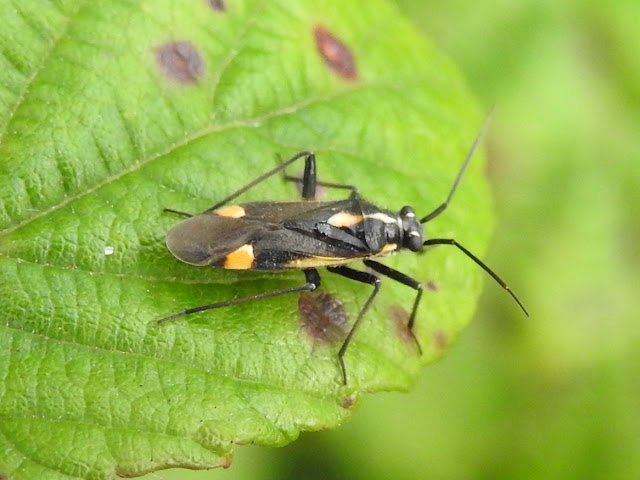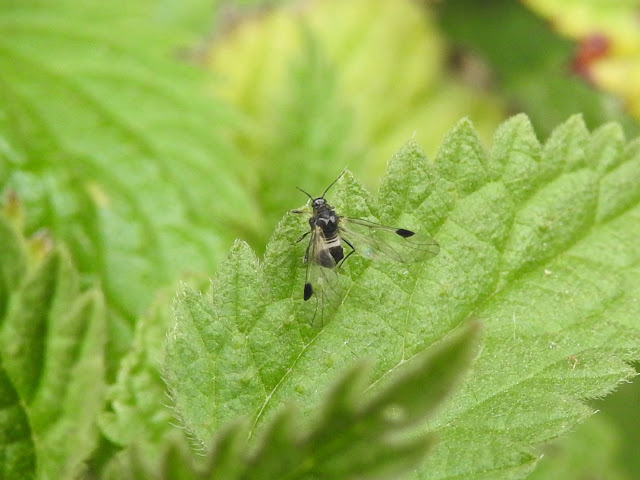Bugs
A distinct group of insects encompassing species as diverse as water boatmen, aphids and froghoppers. A total of 62 species, including 21 new for the Recording Area, were seen this year.
The new species found this year came from several different families, some such as the Potato Leafhopper Eupteryx aurata and Birch Catkin Bug Kleidocerys resedae are widespread, but others were more scarce, often restricted to certain foodplants. These included Meadowsweet Leafhopper Macrosteles septemnotatus, Sand Sedge Planthopper Kelisia sabulicola, the plant bug Orthotylus moncreaffi and the beet bug Parapiesma quadratuma, both of which feed on Sea Purslane.
The ant mimic Pithanus maerkelii was also a new species as were the lace bug Physatocheila dumetarum and Delicate Apple Capsid bug Malacocris chlorizans.
A cross selection of commoner bugs recorded included Green Gorse, Birch and Sloe Shieldbug, the leafhopper Cicadella viridis, Nettle Ground Bug Heterogaster urticae, the 'Radio Mic' bug Heterotoma planicornis and Common Froghopper Philaenus spumarius; the 'Cuckoo spit' producing bug. Dock Bug Coreus marginatus had a good year but their large size and relatively slow movements meant they were much enjoyed by the long staying one-eyed Melodious Warbler.
Other species recorded included Common Dogwood-grass Aphid Anoecia corni, new to site, Giant Willow Aphid Tuberolachnus salignus, Italian Alder Aphid Crypturaphis grassi and the psyllids Trioza alacris and centranthi, on Bay and Red Valerian respectively.
Beetles
This year a further nine new beetles were added to the list, a challenge as the Recording Group are not permitted to take specimens for identification. This brings the overall beetle species total to 245, so plenty more to be found.
Although there were just a few new species there were some exceptional finds, in particular two new ladybirds recorded; Adonis Ladybird Hippodamia variegata and Scarce 7-spotted Ladybird Coccinella magnifica. These nationally scarce species were both found on 6 July on the sea wall amongst an influx of 7-spot and 11-spot Ladybird.
Adonis Ladybird - Steve Fuller
Another exciting find was one of Britain’s largest beetles, the Variable Longhorn Stenocorus meridianus on 11 June , by contrast one of the smallest, Sphaeroderma testaceum, a flea beetle, was found on 10 November, both new for site.
The other new beetles were Aphodius prodromus, a dung beetle, on 1 March, Heather Beetle Lochmaea sutralis on 1 May, Rose Chafer Cetonia aurana on 22 July, Lesser Stag Beetle Dorcus parallelipipedus on 26 August and Rough Strawberry Root Weevil Otiorhynchus rugosostriatus on 13 September.








No comments:
Post a Comment